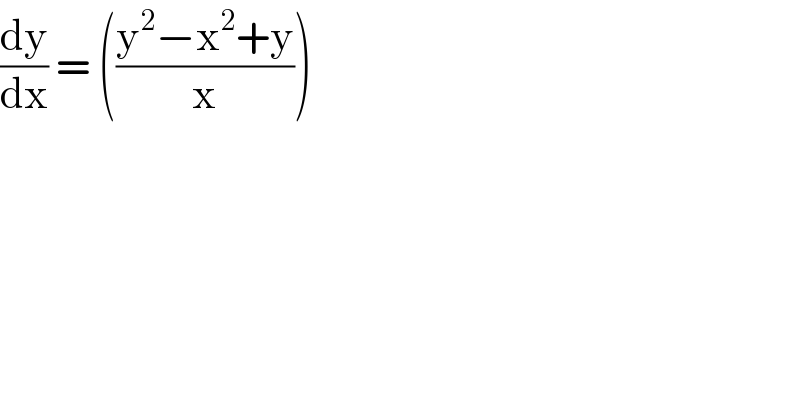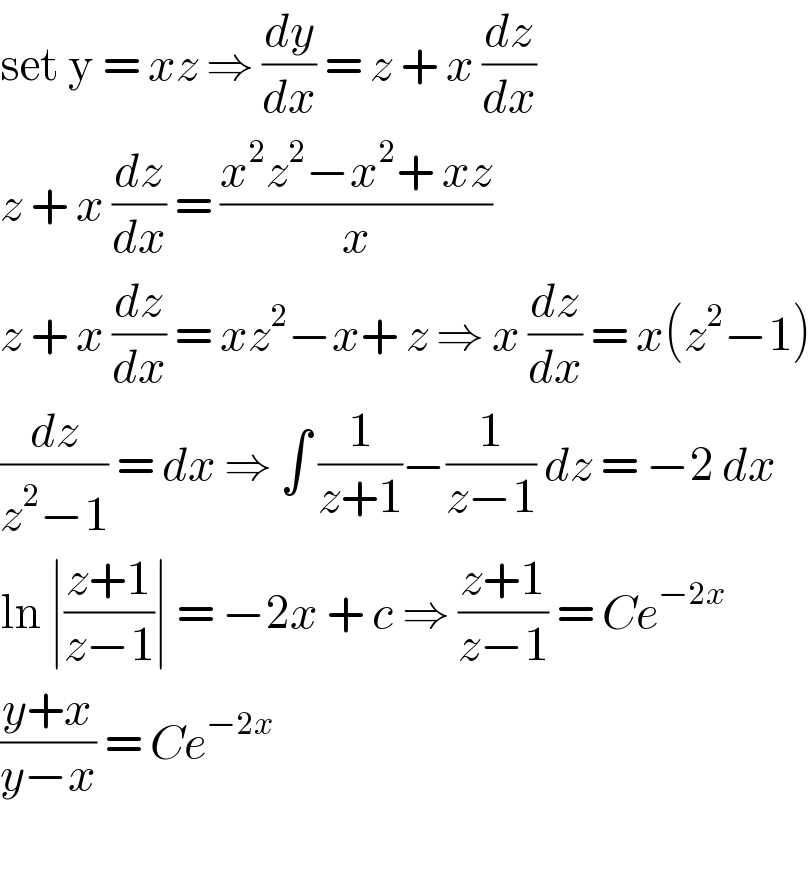Question Number 96217 by john santu last updated on 30/May/20

$$\frac{\mathrm{dy}}{\mathrm{dx}}\:=\:\left(\frac{\mathrm{y}^{\mathrm{2}} −\mathrm{x}^{\mathrm{2}} +\mathrm{y}}{\mathrm{x}}\right)\: \\ $$
Answered by bobhans last updated on 30/May/20

$$\mathrm{set}\:\mathrm{y}\:=\:{xz}\:\Rightarrow\:\frac{{dy}}{{dx}}\:=\:{z}\:+\:{x}\:\frac{{dz}}{{dx}} \\ $$$${z}\:+\:{x}\:\frac{{dz}}{{dx}}\:=\:\frac{{x}^{\mathrm{2}} {z}^{\mathrm{2}} −{x}^{\mathrm{2}} +\:{xz}}{{x}} \\ $$$${z}\:+\:{x}\:\frac{{dz}}{{dx}}\:=\:{xz}^{\mathrm{2}} −{x}+\:{z}\:\Rightarrow\:{x}\:\frac{{dz}}{{dx}}\:=\:{x}\left({z}^{\mathrm{2}} −\mathrm{1}\right) \\ $$$$\frac{{dz}}{{z}^{\mathrm{2}} −\mathrm{1}}\:=\:{dx}\:\Rightarrow\:\int\:\frac{\mathrm{1}}{{z}+\mathrm{1}}−\frac{\mathrm{1}}{{z}−\mathrm{1}}\:{dz}\:=\:−\mathrm{2}\:{dx} \\ $$$$\mathrm{ln}\:\mid\frac{{z}+\mathrm{1}}{{z}−\mathrm{1}}\mid\:=\:−\mathrm{2}{x}\:+\:{c}\:\Rightarrow\:\frac{{z}+\mathrm{1}}{{z}−\mathrm{1}}\:=\:{Ce}^{−\mathrm{2}{x}} \\ $$$$\frac{{y}+{x}}{{y}−{x}}\:=\:{Ce}^{−\mathrm{2}{x}} \: \\ $$$$ \\ $$
